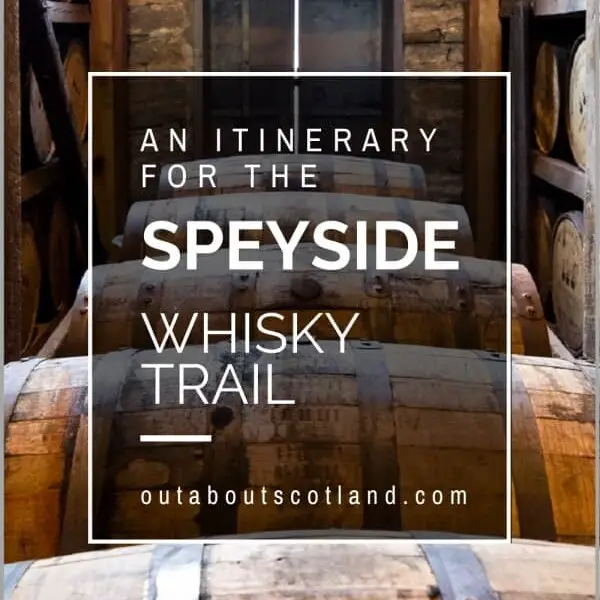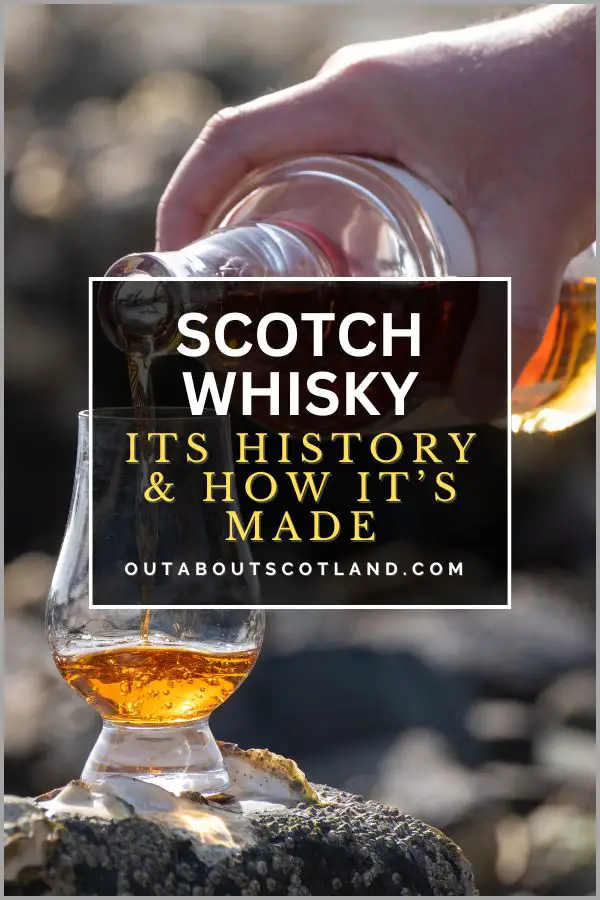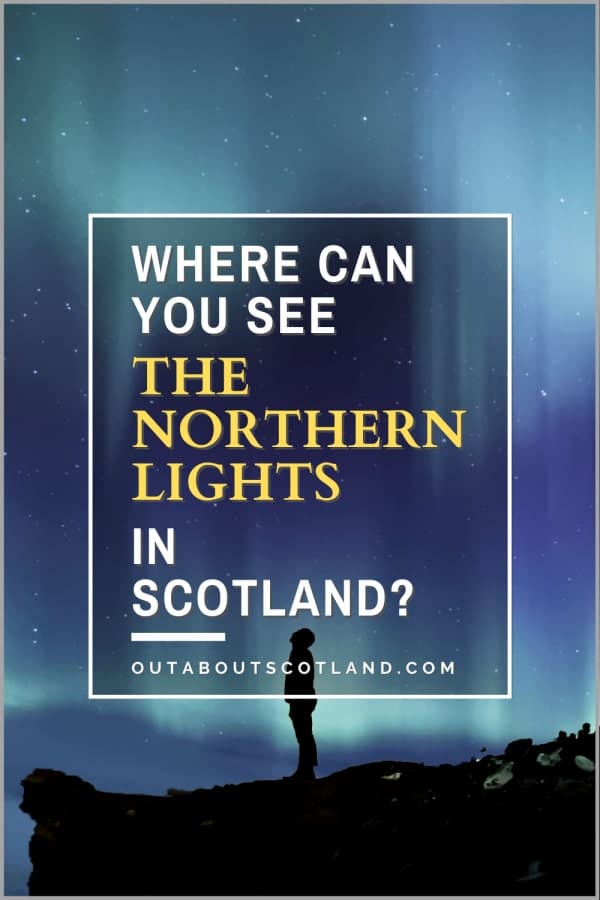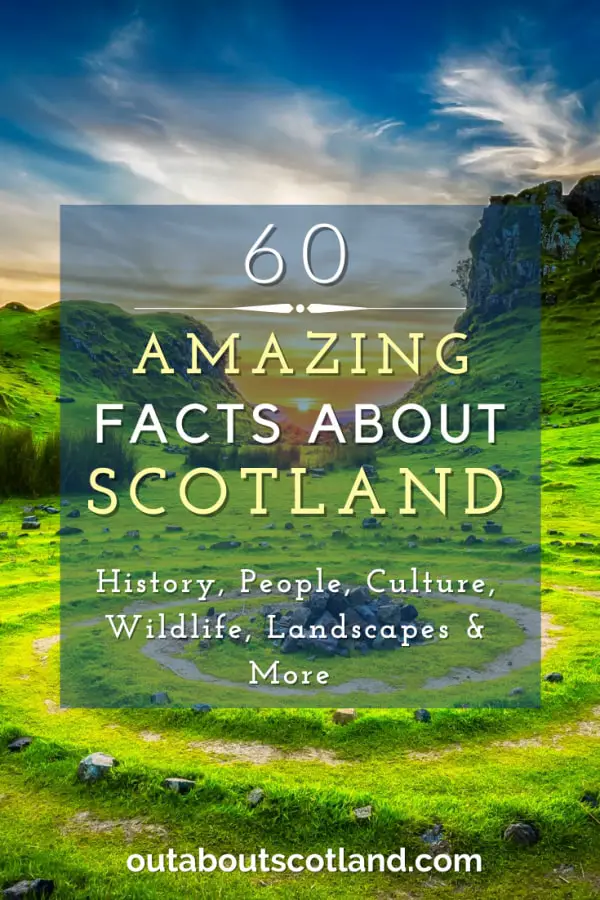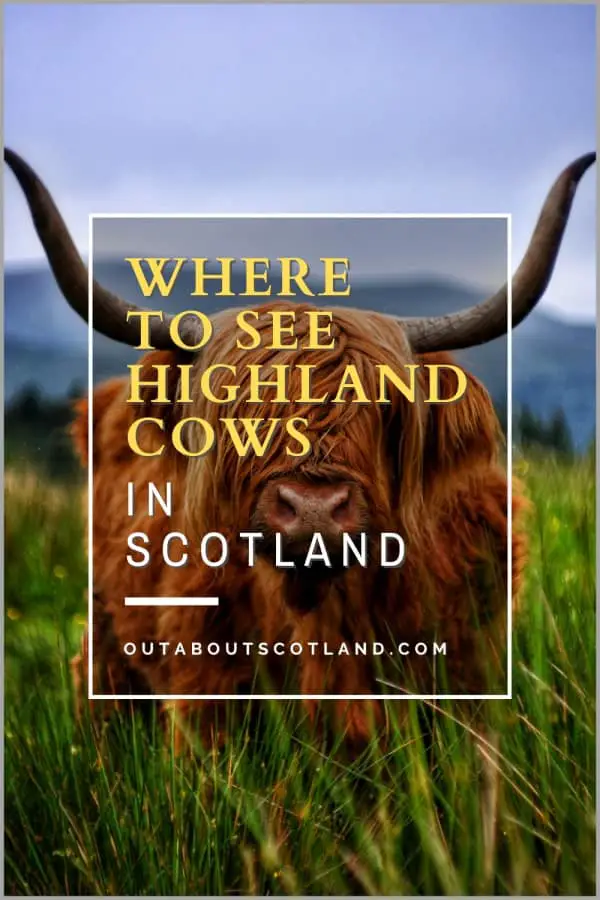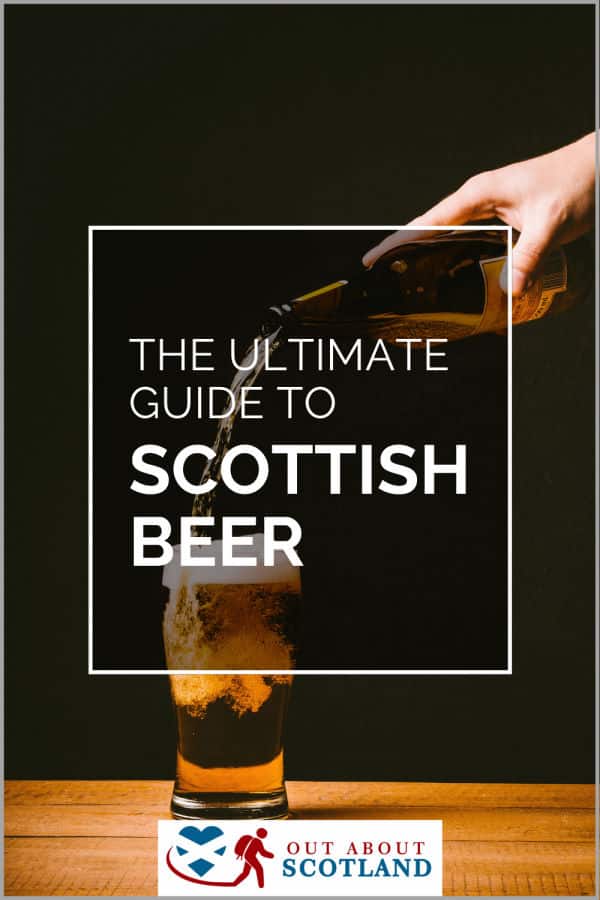Scotland is renowned for its whisky, and one of the most prolific whisky-producing areas is Speyside, situated in the northeast of the country in Aberdeenshire which is a spectacular part of the Grampian region. Discover everything you need to know about Speyside single malt Scotch whisky with this article which explores the best distilleries on the malt whisky trail and the history of Speyside whisky.
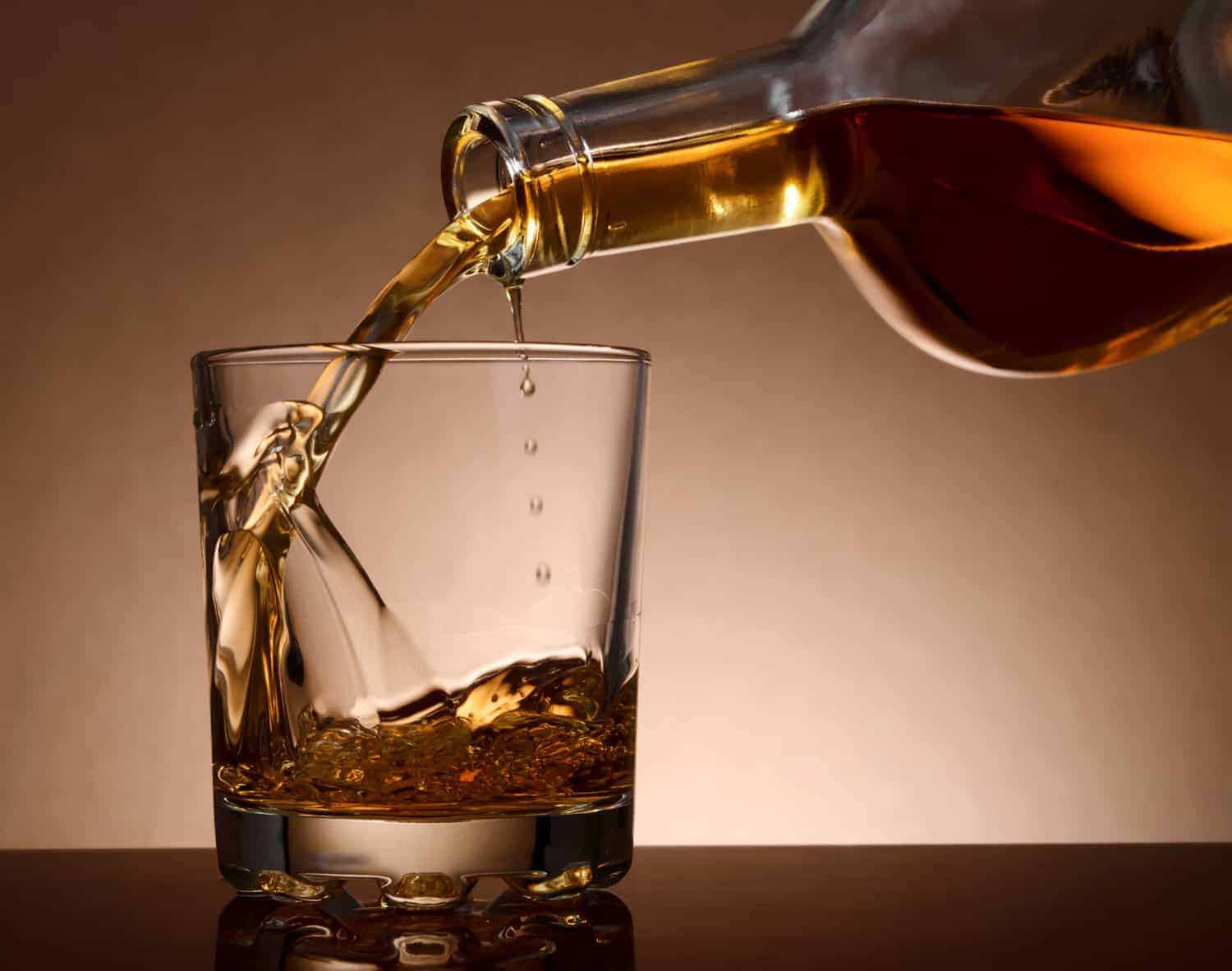
Speyside Single Malt Scotch Whisky
Speyside is well-known for having the largest number of operational distilleries out of all six whisky regions in Scotland, with two of the most-consumed brands in the world originating from the area. Speyside is actually a subdivision of the Highlands whisky-producing region which can be found in the northeast of Scotland, centred around the River Spey in Moray, Badenoch and Strathspey.
Although there are a total of 84 working distilleries in Speyside, only 14 allow tourists to view the distillation process – including the world-famous Glenfiddich, Glenlivet, and Macallan which are on most whisky enthusiasts ‘must-visit’ lists.
Surprisingly for such a relatively small area of Scotland, Speyside produces 60% of the country’s entire whisky output. Unlike the peaty malts of Islay and the smoky malts of the Highlands, Speyside’s location ensures its water has a low mineral content and the whiskies produced there are usually unpeated. This makes Speyside whisky much lighter and sweeter than other regions which in turn attracts a larger audience.
The favours of Speyside whisky can be broken down into two categories; rich sherry-infused malts and lighter floral malts. But even within these distillations there are further nuances due to American bourbon casks that add toffee notes to the already complex flavours.
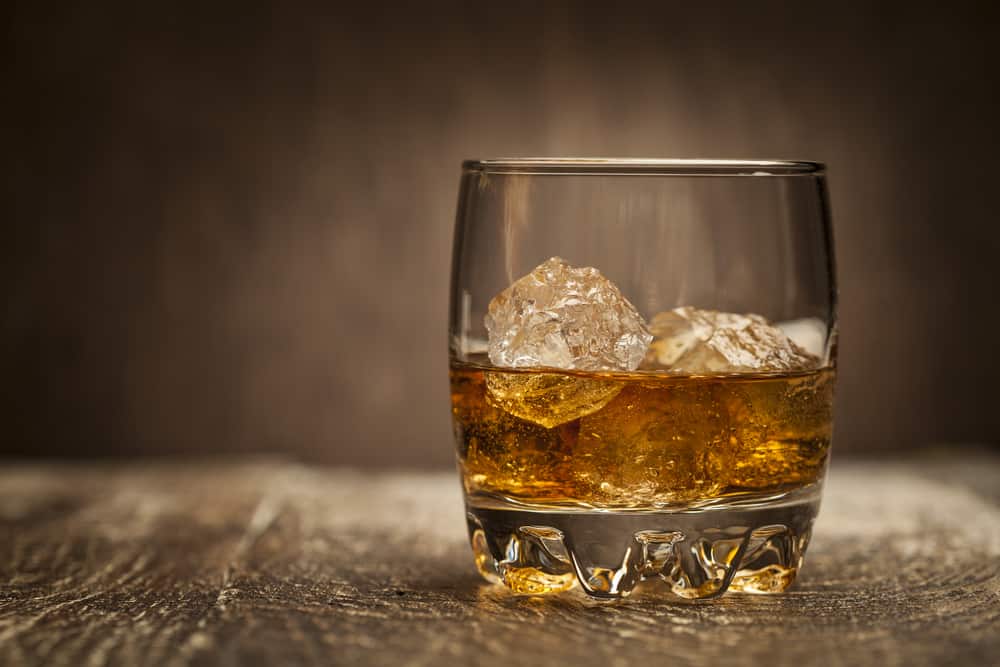
Although whisky is the highlight of Speyside, it has much more to offer visiting tourists.
The beautiful coastline of the Moray Firth can be easily explored to the north, while heading inland towards the south will take you into the breathtaking Highlands where awe-inspiring mountain views can be seen everywhere you look. Dotted around the area are dozens of castles and historic buildings while the cities of Aberdeen and Elgin provide plenty of shopping opportunities.
Spanning Moray is Scotland’s longest river – the Spey – which runs for over 100 miles north to join the Moray Firth at Spey Bay. Downstream at Granton, you’ll find the world-famous River Spey salmon fishing region where thousands of fly fishermen from all over the world attempt to outwit Scottish salmon each year.
The southern half of Moray is home to Ballindoch Castle, rightly referred to as ‘The Pearl of the North’. The castle is situated in an area surrounded by rolling hills and the River Spey flows through the castle grounds, making a visit there the perfect accompaniment to any Speyside tour.
Moving back to the region’s most famous export, no trip to Speyside is complete without touring its famous distilleries, and the following list highlights not only the whisky but also the stunning countryside that can be found in this part of the country.
- Single malt whisky produced in the heart of Speyside, the most celebrated whisky-producing region in scotland
- Matured in American oak barrels for a sweet, mellow taste with a rich, smooth sherry cask finish
- A rich, smooth and refreshing scotch whisky with warm aromas of apple, toffee and honey
- This whisky is created with the finest ingredients, age-old distilling expertise and sophisticated techniques
- Double cask matured for a classic Speyside taste; rich, smooth and mellow
- This complex and full bodied expression is finished over several months in Oloroso Sherry casks sourced from Jerez in Spain. Vibrant dried fruits and earthy, nutty notes combine with traditional vanilla and light oak character to deliver a smooth and satisfying single malt whisky offers.
- Experience the intricate depth of this meticulously aged single malt whisky, crafted to perfection and enhanced by the influence of Sherry casks. Delight in its vibrant character, smooth texture, and gratifying complexity—a true indulgence for discerning whisky enthusiasts.
- Nose: Sun dried fruits, toasted cinnamon and toffee candy.
- Taste: Sweet vanilla oak, dark chocolate and oriental spice.
- Finish: Mouth tingling warm spice combines with bittersweet dark chocolate to deliver a long rich satisfying finish.
- Finish: Mouth tingling warm spice combines with bittersweet dark chocolate to deliver a long rich satisfying finish.
- This unrivalled single malt matures for at least 18 years in the highest quality, handpicked oak casks, creating a radiant golden colour and seductive floral and oaky aroma
- Deeply layered and complex, this rich and vibrant whisky delivers beautifully intricate flavours of malted caramel, vanilla, and raisins and lingers with a long, sweet, and pleasantly spicy finish
- Multi award winning single malt
- Long, sweet with hints of nuts and spice finish
- Matured in a mixture of ex-American bourbon barrels and ex oloroso sherry butts
- Alcohol content: 43.0
- Country string: Scotland
Speyside Malt Whisky Trail: Day One
- Glenlivet
- Cardhu
- Speyside Cooperage
Speyside Malt Whisky Trail Map
Glenlivet Distillery
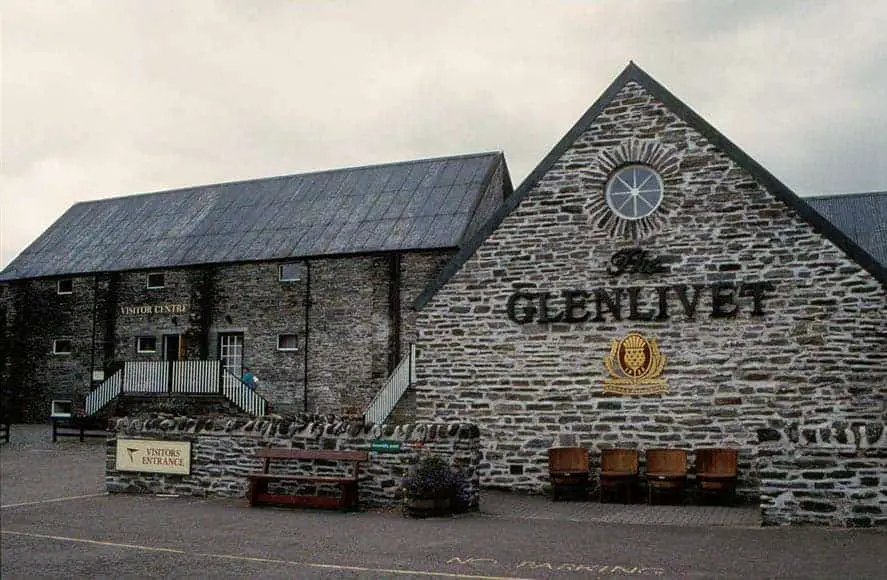
Telephone: 01340 821720
Email: theglenlivet.admin@pernod-ricard.com
Set within a wild and remote glen near Ballindalloch in Moray, the world-famous Glenlivet distillery was founded in 1824 and has operated almost without change since that time. Although production was originally on a small scale, the popularity of the brand means that it has now become the biggest-selling single malt whisky in the U.S., and around 6 million bottles are sold worldwide annually.
To the south of the distillery lies the imposing Cairngorm mountain range which features many of Scotland’s highest peaks, while to the north the massive Ben Rinnes mountain dominates the landscape. All of these go towards making a visit to Glenlivet a truly memorable experience.
Cardhu Distillery
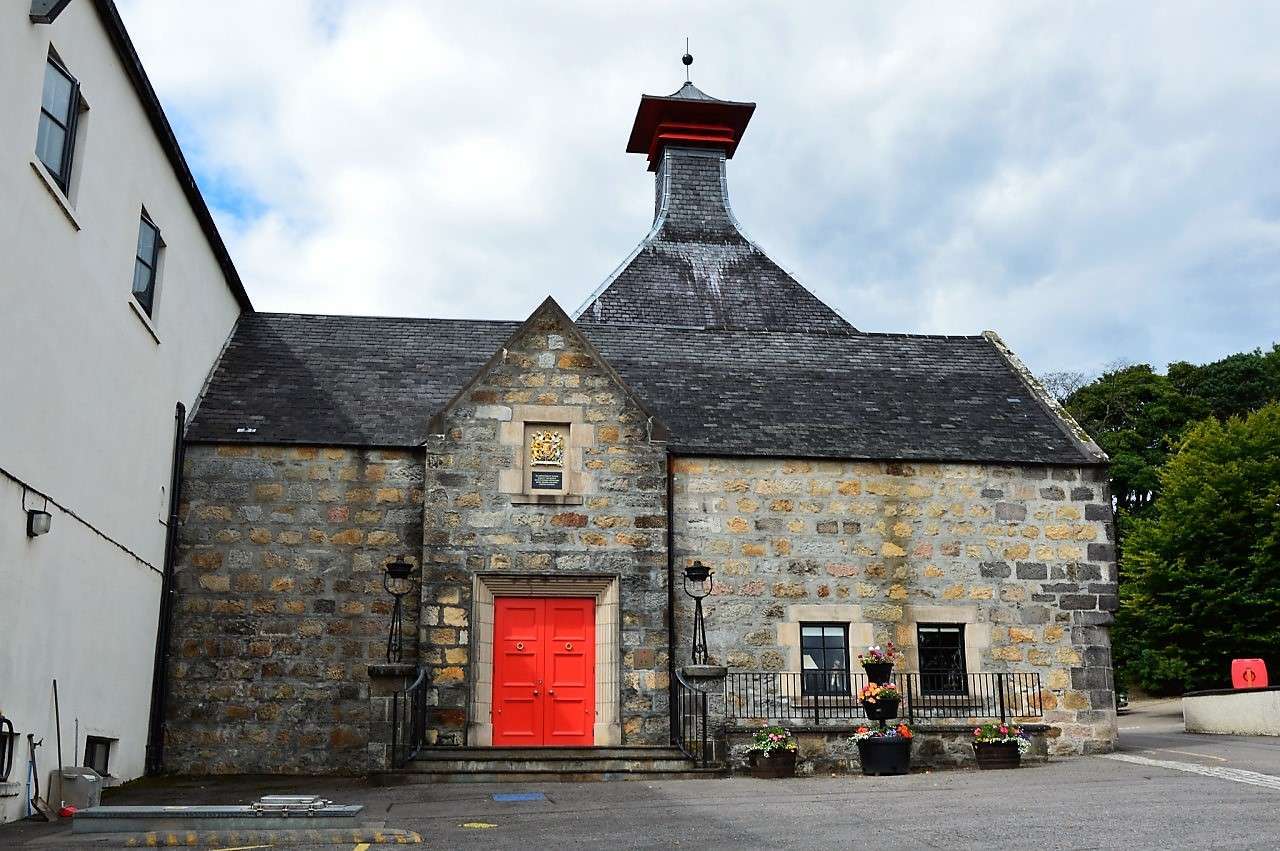
Telephone: 01479 874635
Email: cardhu.distillery@diageo.com
The Cardhu distillery can be found in open countryside around 17 miles from Grantown-on-Spey and around 7 miles from Craigellachie. The open fields that surround this area would have made it easy for early illegal distillers to spot incoming government tax men, which is the likely reason why whisky production began there.
Cardhu was founded in 1824 by the whisky smuggler John Cumming who knew the value of the peat-softened water that flows through the river Spey. The whisky from the original stills was sold to passers-by as they made their way past the Cumming farmhouse, and it wasn’t long before the quality of the product made demand far outstrip supply.
In 1855 the distilling equipment was upgraded and a new distilling plant was built that could produce triple the quantity of whisky that the old distillery could, much more than any other whisky producer in the area. Around this time the blended Johnnie Walker brand was becoming increasingly popular and to keep up with demand a large proportion of the Cardhu output was sold to include in their blend, a process that continues to this day.
Speyside Cooperage
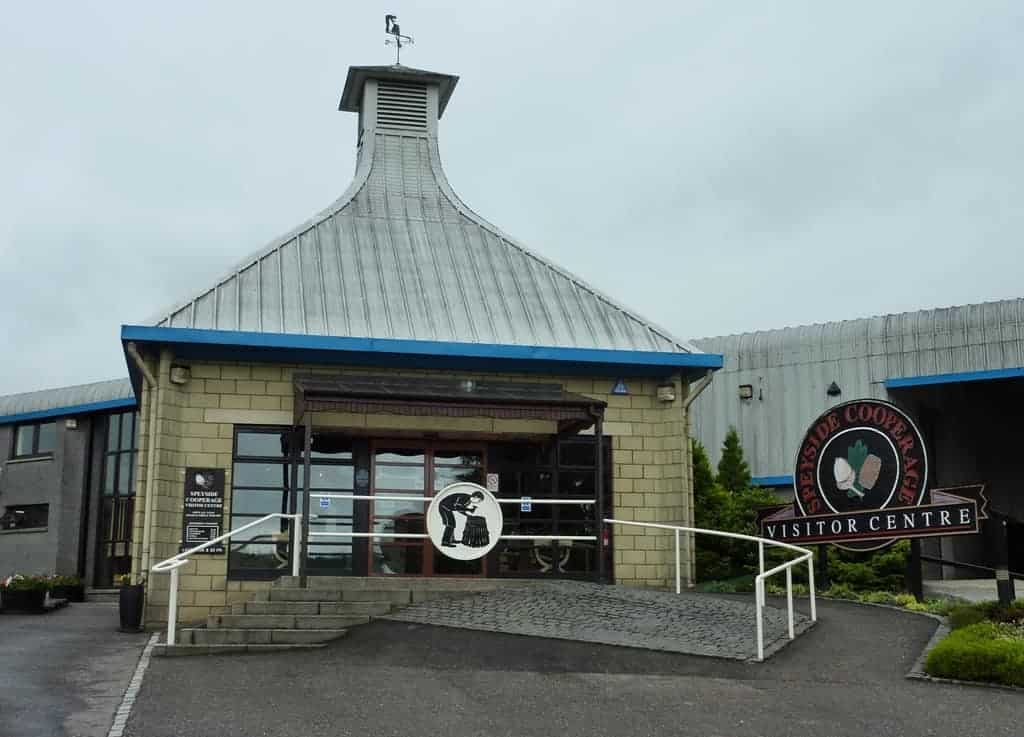
Telephone: (01340) 871108
Email: enquiries@speysidecooperage.co.uk
The Speyside Cooperage is the only working barrel manufacturer in Britain that still practices the traditional art of coopering, otherwise known as barrel or cask making. The cooperage has been running successfully since 1947 and to this day they still make their barrels using the same hand-crafted techniques that have been passed down through the generations.
The Speyside Cooperage has an excellent visitor centre where not only can you watch the craftsmen as they create new barrels but you can even have a go yourself (results may differ!). There’s also a coffee shop and gift shop to visit after you’ve tried your hand at barrel making.
Speyside Malt Whisky Trail: Day Two
- Glenfiddich
- Glen Grant
- Strathisla
Speyside Malt Whisky Trail Map
Glenfiddich Distillery
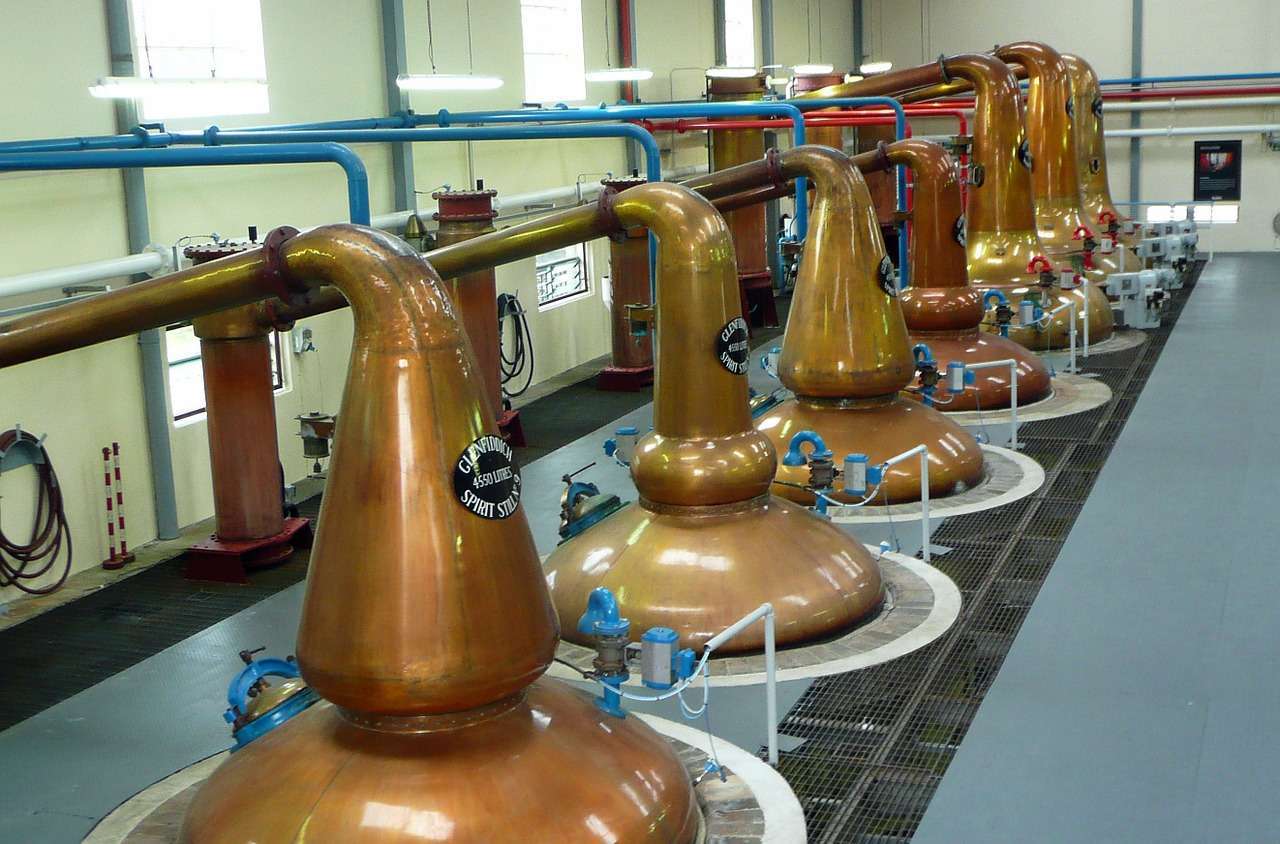
Telephone: 01340 820 373
Email: glenfiddichbookings@wgrant.com
The world-famous Glenfiddich brand is instantly recognizable by its stag logo which is derived from the Scottish Gaelic phrase ‘Valley of the Deer’. The logo adorns every bottle of the 13 million litres of spirit produced annually including the iconic 12-year-old single malt that’s one of the world’s most-consumed whiskies.
Glenfiddich has the accolade of being the world’s best-selling Speyside single malt scotch, and the enormous distilling plant certainly lives up to its status as one of the world’s top brands.
Founded in 1886 by William Grant, the distillery building was hand-built by the Grant family, and Glenfiddich is one of the few distilleries that is still entirely family-owned.
The scale of the operation is what’s most impressive about the tour, with 32 handmade copper pot stills to view as well as their own bottling plant. In addition to the various tours on offer, there’s an excellent restaurant on the site, a bar with exclusive drams costing from a few pounds to a thousand, and a gift shop selling high-quality Scottish souvenirs.
Glen Grant Distillery
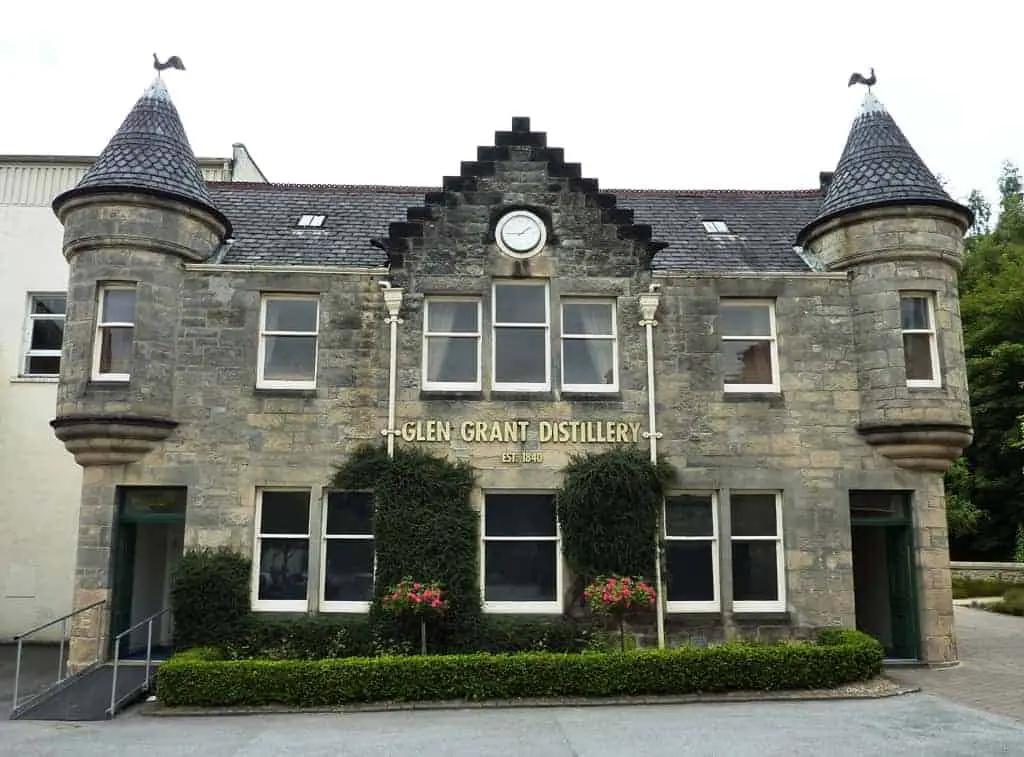
Telephone: 01340 832 118
Email: visitorcentre@glengrant.com
The Glen Grant distillery is situated at the north end of the village of Rothes and is one of the smaller distilleries in this itinerary, consisting of just 8 stills, a few warehouses, and some woodland gardens in a glen just behind the distillery plant.
The distillery was founded by brothers John and James Grant who saw the business opportunities that lay around Rothes in the early 1800s. Originally producers of illegal whisky, the Grant brothers understood that the abundant barley crops from the Speyside fields allied with the clear River Spey waters were perfect for producing whisky, and so in 1840 they applied for a legal licence to produce malt whisky.
After the brothers’ deaths, their nephew James ‘The Major’ Grant took over the family business where he devised the unusually tall and slender stills which create the distinctive Glen Grant taste that we enjoy today. During his tenure, the Major also brought back many plants from Africa during his service in the British Army and it was these specimens that established the previously mentioned woodland gardens at the rear of the distillery.
Strathisla Distillery
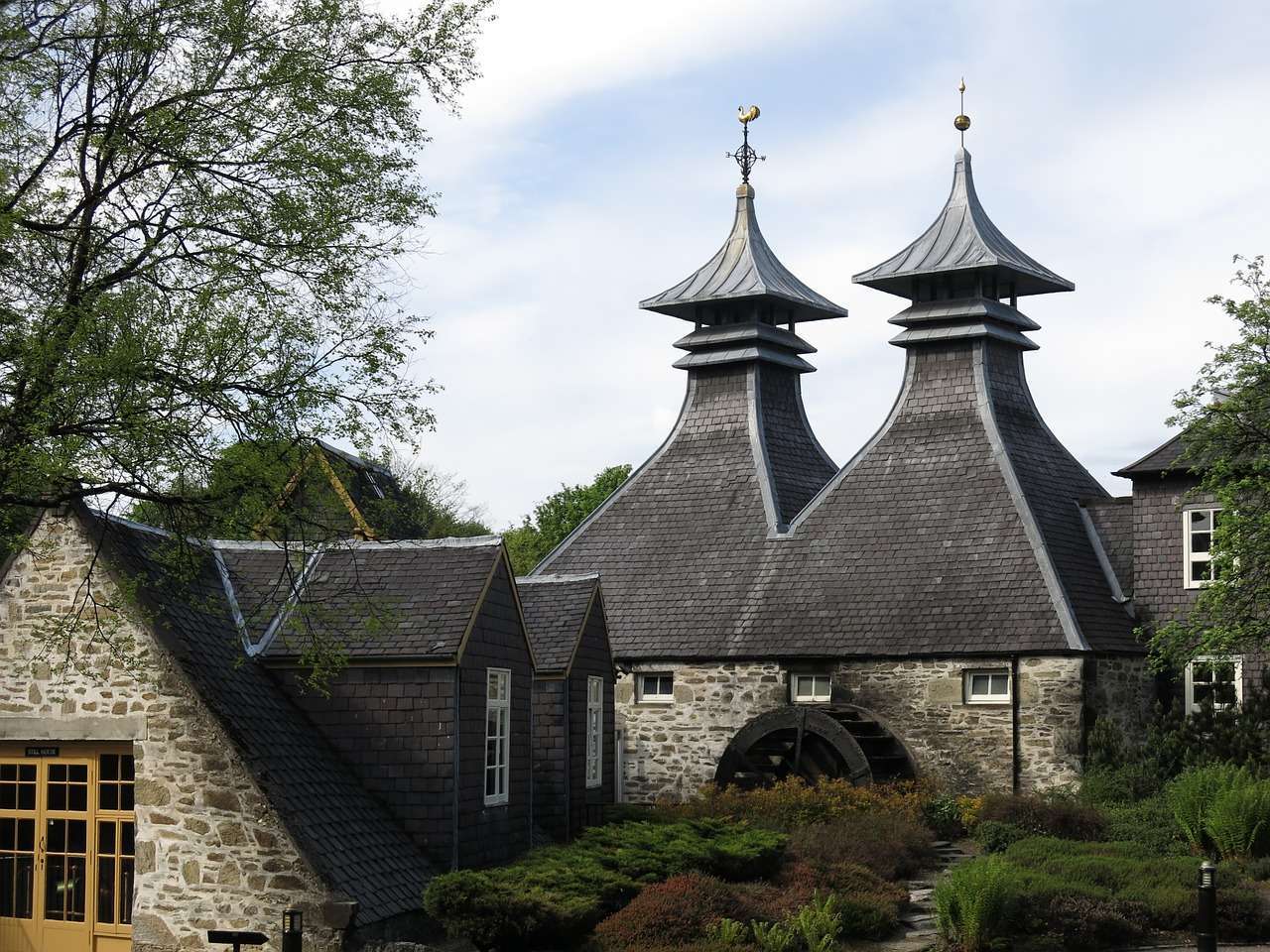
Telephone: 01542 783044
Originally founded as the Milltown distillery in 1786, Strathisla has the distinction of being the oldest continuously operating distillery in Scotland.
Although it’s not the smallest whisky operation in Scotland it definitely ranks towards the lower end of whisky production by volume, with only two stills in operation producing around two and a half million litres per year. However, the small size of the operation is more than made up for by the quality of the product, which can be tasted during a guided tour. Walking around the production areas gives you an incredible sense of the history behind this 200-year-old business.
Although Strathisla was purchased by the Chivas Brothers in 1950, they still make single malts in the traditional way in addition to providing malts for the modern Chivas Regal blend.
As with most distilleries in this itinerary, there are various tours that you have the option to sign up for, but the Strathisla Connoisseur Tour definitely needs to be experienced if you’re a fan of this whisky. The tour allows you to sample six limited-edition single malts during a private tour of the plant over the course of an afternoon.
Speyside Malt Whisky Trail: Day Three
- Glen Moray
- Benromach
- Dallas Dhu
Glen Moray Distillery
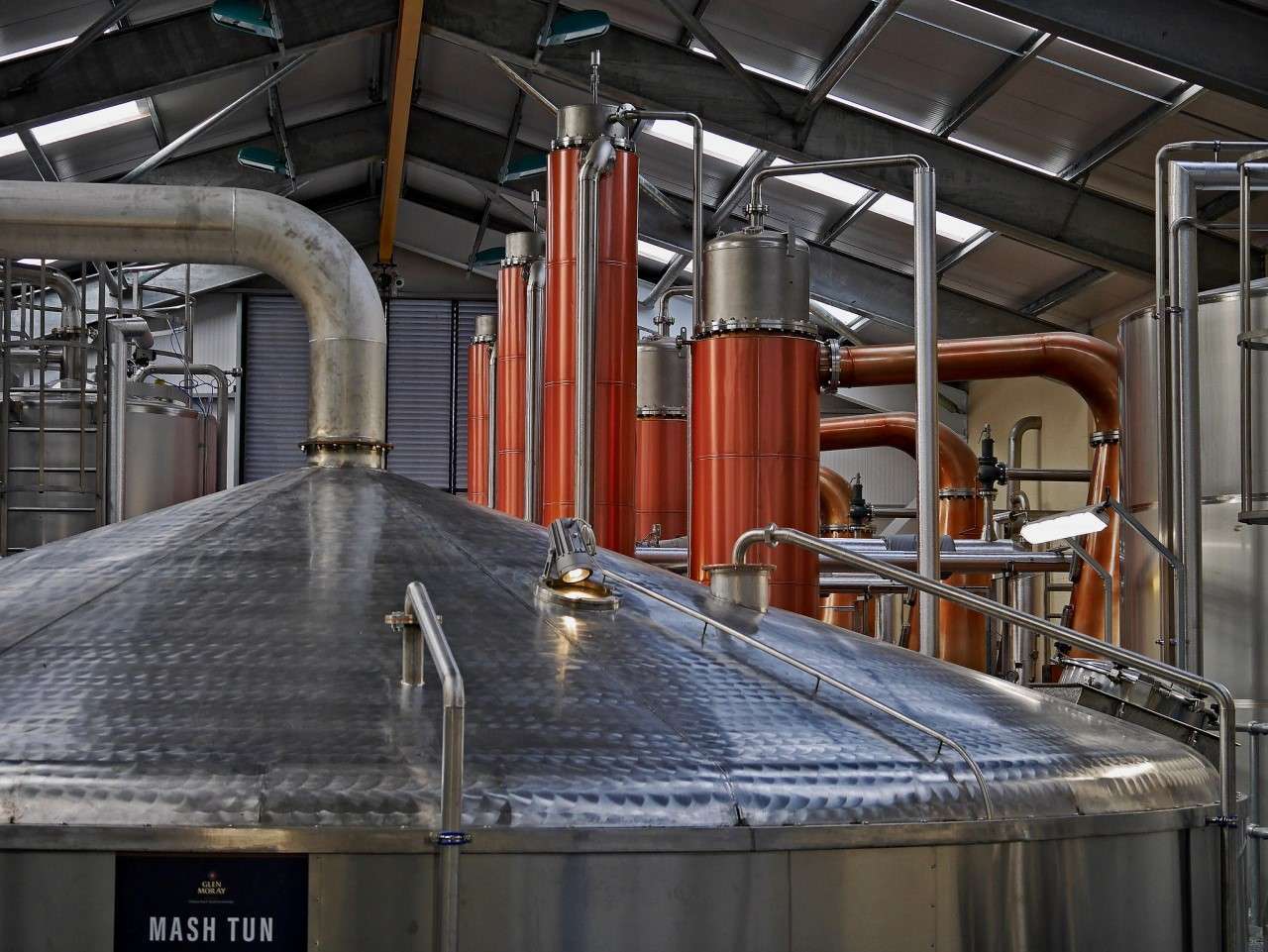
Telephone: 01343 550 900
Email: visitor.centre@glen-moray.co.uk
Situated on the banks of the River Lossie in Elgin, the Glen Moray distillery has been producing single malt whisky since its founding in 1897.
Originally a brewery, the owner Robert Thorne converted his business into whisky production after realizing that quality spirits could be distilled from the clear waters of the nearby river. The business changed ownership several times during its history, but it’s now owned and managed by the La Martiniquaise company which uses the output from Glen Moray in their own blends, as well as Glen Moray single malts.
The distillery has expanded production to three stills and currently produces over five and a half million litres of spirit each year. Taking part in one of their tours allows you to see their distilling process first-hand and gives you the chance to sample a dram or two afterwards.
Another draw of this distillery is the fact that it’s situated in the Speyside capital city of Elgin, so after a tour of the plant you can spend the remainder of the day wandering around the historic city. While you’re there make sure you check out Elgin Cathedral which features panoramic views from the top of its towers.
Benromach Distillery
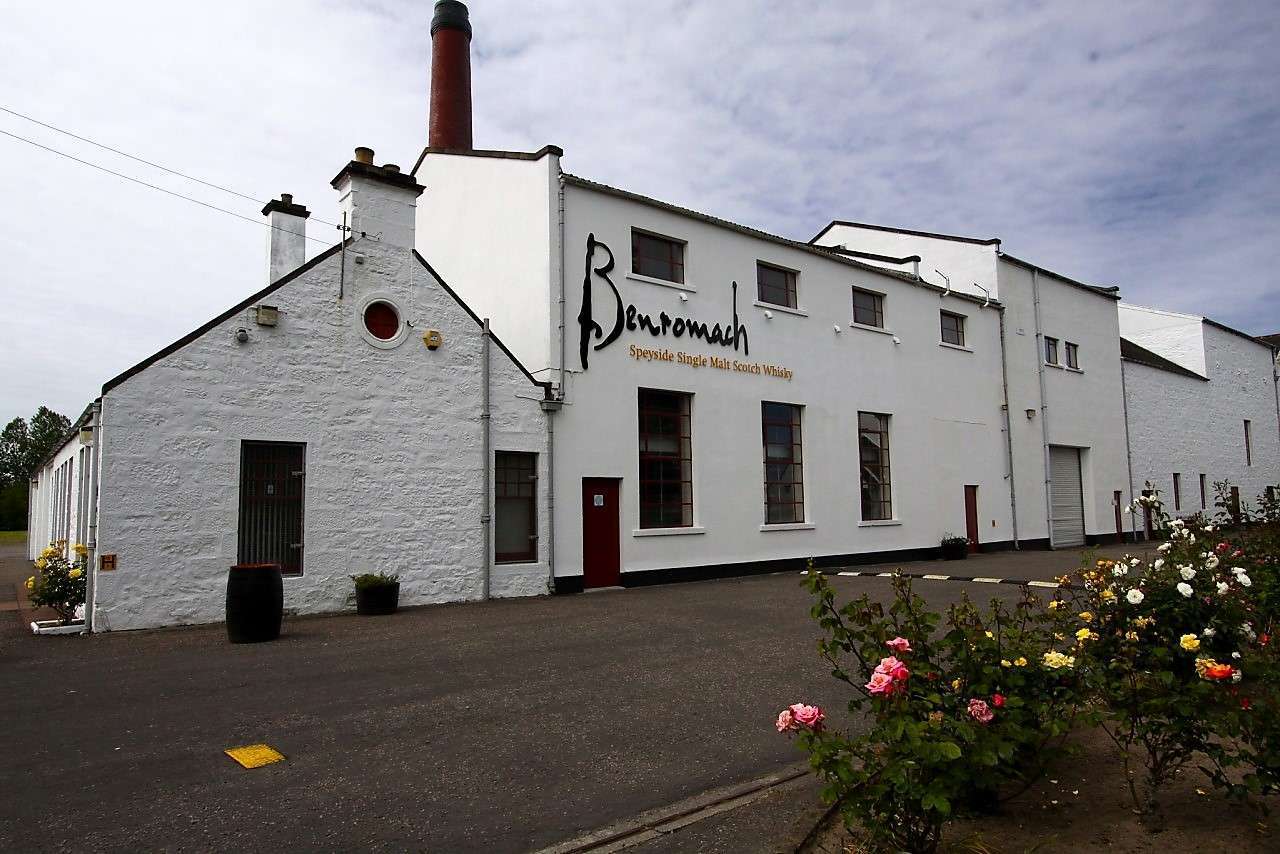
Telephone: 01309 675 968
Email: info@benromach.com
Benromach is one of those distilleries that insists on creating the perfect whisky by age-old methods – which can be seen everywhere you go on a tour of the complex. Not only is every cask hand-filled, but Benromach refuses to use computers or pressure gauges to control the distilling process. Instead, everything is monitored and managed by human touch, smell and sight, backed up by years of experience.
The distillery was founded in 1898 by Duncan McCallum and F.W. Brickman, two experienced businessmen in the field of Scottish whisky who sought to utilize their combined knowledge to produce quality Speyside whisky.
Unfortunately, there was a great depression in the industry at that time and they had to close their doors shortly after opening due to a lack of funds. Over the next hundred years, the business was sold and re-purchased by many owners until 1993 when Gordon and MacPhail took over.
A complete restoration of the distillery began in 1997 when the owners took the decision to revert the stills and machinery back to similar types that were used in the 19th century. That meant the old-style production methods could be used once again and it appears the whisky-loving public approves because in 2014 Benromach won gold at the World Whisky Awards.
Dallas Dhu Distillery
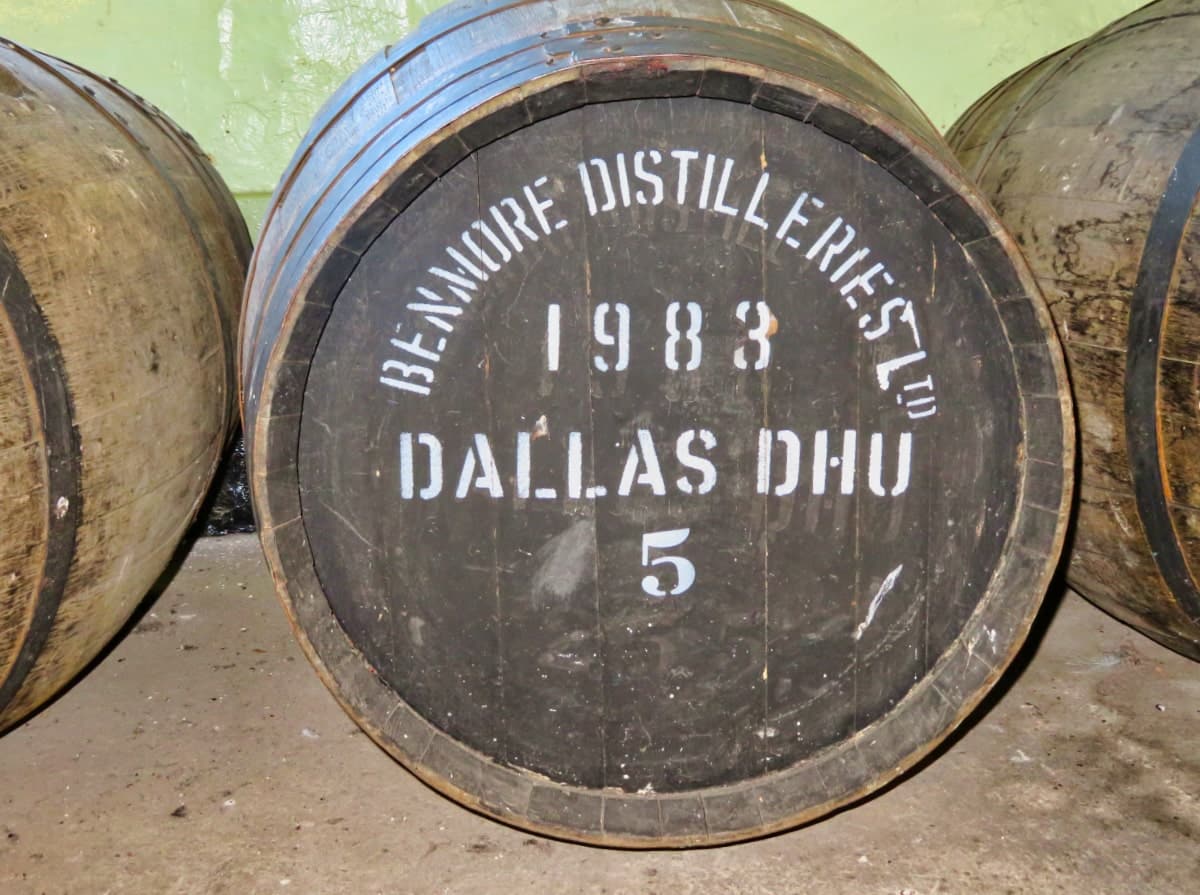
Telephone: 01309 676548
The last distillery in our Speyside whisky itinerary is slightly different to the others as it’s not actually privately owned but is in fact owned and managed by Historic Environment Scotland.
In 1899, businessman Alexander Edward decided that the Scottish whisky boom meant that a profitable distillery would be warmly welcomed by the Forres community, and so Dallasmore was born which later changed its name to Dallas Dhu.
The distillery continued to make single malts up until 1983 when economic pressures and an unreliable water supply forced Dallas Dhu to close. Luckily for whisky lovers, this small piece of Scottish history has been kept alive thanks to Historic Environment Scotland’s tireless work to restore the buildings, and today they’re just as they would have looked at the end of the 19th century.
Special offer for the whisky lovers out there!
Do you love Scotch Whisky and want to learn more about it while having the chance to try special edition bottlings before anyone else? Then becoming a member of the Scotch Malt Whisky Society is exactly what you’re looking for.
Become a fully-fledged member and enjoy an ever-changing and unlimited selection of single cask whiskies, gain access to new releases before anyone else and pay special prices on their bottlings and tickets for tasting events. Membership also allows you to buy their special edition signature whisky, gain exclusive access to their member-only venues, and receive regular editions of their award-winning magazine.
Join the Scotch Malt Whisky Society today.
If you’d like information about the harmful effects of excessive alcohol consumption as well as tips on how to reduce alcohol intake please take a look at the Drink Aware website.
Frequently Asked Questions
Where are the single-malt whisky regions of Scotland?
Speyside, Highlands, Lowlands, The Islands, The Isle of Islay, and Campbeltown.
What are the most popular whiskies from each Scotch-producing region?
Speyside: Macallan, Dalwhinnie, Glenlivet, Glenfiddich.
Highlands: Dalmore and Glenmorangie.
Lowlands: Auchentoshan, Glenkinchie
The Islands: Highland Park, Talisker, Jura.
Islay: Ardbeg, Laphroaig, Lagavulin
Campbeltown: Glengyle and Springbank
How many whisky distilleries are there in Scotland?
There are currently 128 different distilleries licensed to produce genuine Scotch whisky in the five main single malt regions. Distilleries that are not located in Scotland are not allowed to call their product Scotch whisky.
How important is whisky to Scotland?
Scotch whisky accounts for almost 20% of the entire UK exports of food and drink and earns the UK around £140 every second. The industry supports over 40,000 jobs with 10,000 employed directly by whisky manufacturers.

